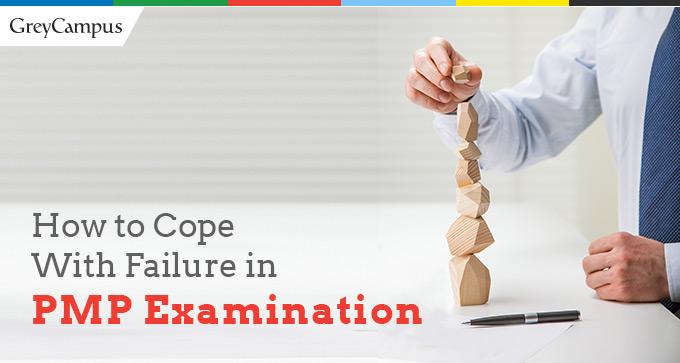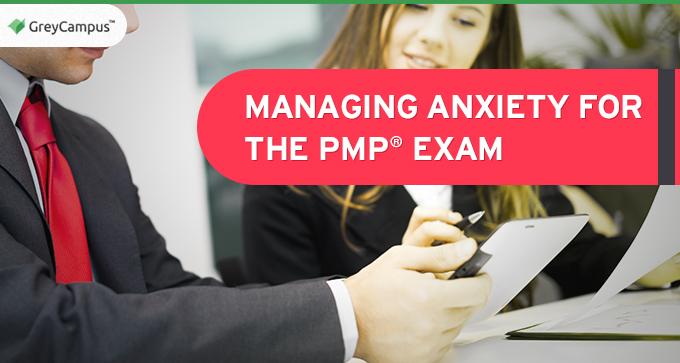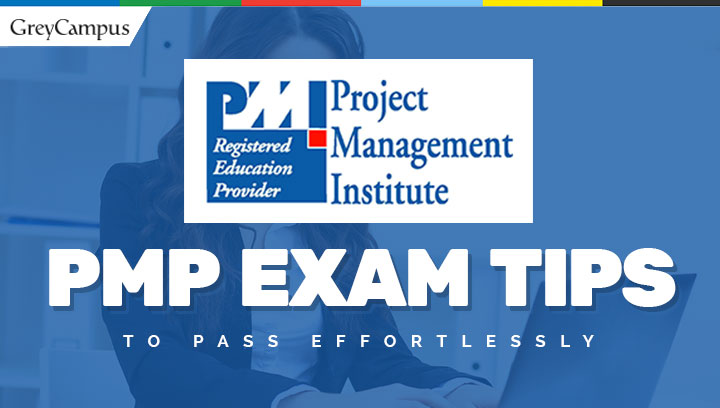10 Tips to Pass the PMP Exam effortlessly
The PMP credential is not only globally recognized but also one of the most sought-after project management certifications. Many multinational companies and software firms prefer PMP certified candidates for project management positions. The eligibility criteria for PMP certification include project management and delivery experience of about 5 years, in addition to 35 hours of project management education (also known as 35 contact hours). This ensures PMP certified professionals to be well equipped with the right set of skills for navigating through the dynamics of the modern project-oriented workplace.
The PMP certification exam is quite a challenge and requires rigorous preparation. But if you go about your preparation in a planned and systematic manner and have the right approach for the test, you can easily pass the test in the first attempt. You can consider the exam itself as a culmination of a well-managed project involving all the factors that come into play during project delivery. Right from preparation, planning, adherence to timelines and execution, succeeding in the exam can be the result of a well-defined and strategic approach. Here are ten tips that may help you in devising your own customized strategy towards passing the exam.
#1: Preparation:
There is a quote that states “If you fail to prepare, you are preparing to fail”. It is very important to prepare thoroughly, especially if you are preparing for the PMP certification. It is recommended that you spend enough time reading the study material thoroughly. It is also important to plan your study such that you focus on some of the important concepts and have a good understanding of them. Read the PMBOK (Project Management Body of Knowledge) guide thoroughly for all the topics, even if you are referring to other study materials which may be more concise and test-oriented.
Please refer to the following video as a first step preparation guide:
#2: Key Concepts:
Write down the key concepts and formulae and go through some of the frequently asked questions thoroughly from different areas of the PMP exam and make sure you are familiar with the terms, notations, concepts, etc.
#3: Refer to Process Flow Charts:
The process flow charts are available for the PMP exam from most institutes which specialize in PMP training. You can also alternatively prepare your own charts for each of the process groups and process areas and paste them on your wall where you can see them every day. Any type of diagrams or process flows are useful for understanding and retention of concepts. There are 5 process areas and 47 process groups for the PMP. E.g.: Process Area: Planning Knowledge Area: Scope Management Process: Define Scope.
_11zon.png)
Image source : http://www.billmarsden.com
#4: Practice makes a Man perfect:
Practice taking tests which have the similar format and measure your performance in these tests before taking the actual test. Also, some techniques such as the elimination of choices and making right guesses can be practiced and perfected. Identify the areas where you are scoring low and prepare better for these areas.

Image source : http://pmiwic.org
#5: Networking:
Interact with other people who are preparing for the PMP exam on social media platforms such as LinkedIn and other forums, where you will be able to get some good study materials and useful tips and tricks. Also, interacting with other people who have already passed the PMP certification exam will help you gain a lot from their knowledge and experience.
One can post questions and get some useful information and resources from other professionals regarding the PMP exam. This type of networking will also help the candidates to find some job opportunities with other companies through their contacts. Some companies prefer to hire candidates who are referred by someone within the organization since they want to be sure that they are hiring some of the best candidates. Therefore networking is very important and this can build some useful professional contacts.
#6: Time is the Essence
Plan your time based on how you will study all the materials and pace yourself such that you are well prepared before the test. Also, monitor your progress in terms of the test scores and whether you are able to complete the test within the stipulated duration of 4 hours.
#7: Maintain a positive attitude
It is very important to maintain a positive attitude while preparing for the exam since you will need to study a lot of material and maintain your focus for a long duration while appearing for the actual exam.
#8: Importance of Hard Work
There is nothing that is impossible if you are ready to work hard for it. Hard work is an important quality to have even while preparing for the PMP exam. You will have to work hard even after you become a PMP-certified project manager.

Source : https://www.greycampus.com/blog/project-management/how-to-cope-with-failure-in-pmp-examination
#9: Handling Failure:
It is also important to be able to handle failure, as things might not always turn out the way you wanted them to be or in some cases. For example, you might score low while practicing for the test. It is important not to give up easily and keep working hard to improve on your weak areas and performing well again. One should remember that the PMP test is more like running a marathon and not a short 100-metre race. Therefore, a candidate is advised to be mentally prepared for the challenge. Enough practice before taking the actual PMP exam will make a candidate more comfortable with the pattern of the questions and also reduce the number of wrong responses or errors while taking the actual test.

Source : https://www.greycampus.com/blog/project-management/managing-anxiety-for-the-pmp-exam
#10: Managing stress before and during the test
Reach the test center at least 30 minutes before so that you have enough time to settle down and be in a positive frame of mind to do well in the test. Plan the amount of time that you will be spending on each section of the test so that you do not run out of time at the end of the test.
Hope these tips will be useful for candidates aspiring to pass the PMP certification exam. The ideal time frame to study for the PMP exam is 3-4 months prior to taking the exam. This will ensure that the study material referred to by the candidate is fresh in memory and the candidate is in a good position to take the exam.
Conclusion:
The value of the PMP credential can be gauged by the positions held by PMP credential holders and the salary packages of these professionals. The importance of the project management profession can be gauged by the number of infrastructure projects which are currently being executed and which need to be managed across industries in developing countries such as India, China, Brazil etc. These projects need experienced and knowledgeable project management professionals to be able to manage the projects efficiently and help control costs and manage resources effectively. The value addition is in the proper understanding of all the process areas and process groups which are included in the project management framework. The PMP is not just a mere credential for a candidate to secure a good position and pay package in a company, but the knowledge gained through this course helps a practitioner contribute to the project management profession effectively. To conclude, earning the PMP credential is very useful and this would enable a candidate to gain an edge in today’s highly competitive job market.
GET PMP CERTIFIED
